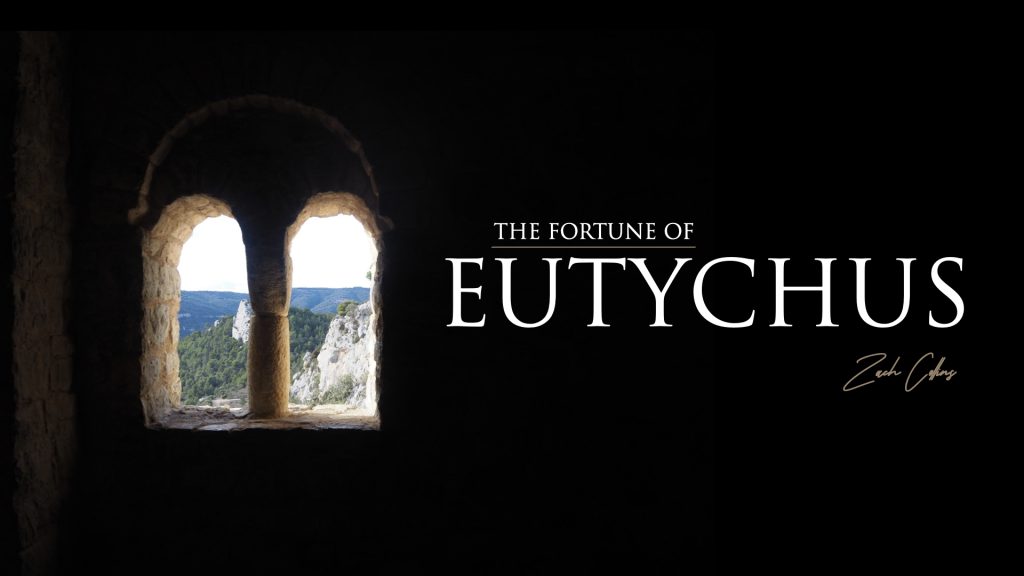
After one of those long sermons that seemed to last forever, a father and son walked toward the door. Suddenly, the boy stopped in his tracks. He saw a plaque in the foyer and asked his dad, “Daddy, what is this for?” His father said, “Oh, that’s in memory of those who died in the service.” The little boy asked, “Which service – the morning or evening service?” Children can have a great sense of humor, but perhaps this boy remembered another familiar story in the Bible. We have become accustomed to stressing the importance of gathering and attending the morning worship service. Many prioritize this worship service over other services offered at the building. However, in the New Testament, there is more evidence that the first-century saints gathered in the evening than in the morning to worship God. They used lamps to provide light in their meeting room, (c.f., Acts 20:8). This is the setting for the story of Eutychus.
In Acts 20, on the first day of the week, when the disciples came together to break bread, Paul was set to depart Troas the next day, (c.f., Acts 20:7). So, he delivered a message that lasted until midnight to those who were gathered. As Paul was preaching, a young man named Eutychus sat on a ledge. He fell asleep, fell from the third-story window, and was taken up dead, (c.f., Acts 20:9). This is the first recording in the inspirational record of a person dying in the worship of the first-century church. We are left with many questions regarding Eutychus. Why was he overcome with sleep? Did the sermon of Paul bore him, literally, to death? How long did Paul preach on this day? The Bible does not answer these questions. However, while a short narrative in an otherwise long book, one story can profoundly impact our lives when viewed through another scope.
In the story of Eutychus, we find an unfortunate parallel to many who sit in pews in the Lord’s church today. He was disengaged from the message being preached, was overcome with spiritual slumber, and then fell to his death because he lacked caution to heed the spoken words. The name Eutychus, in Greek, means fortunate. Ironically, he received good fortune when God restored him to life after his ill-fated fall. Why did Luke record this story in the inspirational record? I believe there are many reasons – and, no, I do not believe it was to poke fun at Paul for his overly long and not-so-exciting sermons. There are profound precepts in this short story:
- This story shows us the dangers of spiritual slumber. Let us not be found unalert in our nightshirt when waging spiritual war with Satan. If we are caught in our spiritual slumber when Jesus returns, we shall be found as the foolish virgins outside the wedding feast, remorseful and shamefaced. Let us be sober and vigilant! (c.f., 1 Peter 5:8)
- This story shows the importance of priorities, especially among our youth. If you cater to the flesh of your children, why should you be surprised when they become slaves to the flesh as adults? Our youth can do much good in the kingdom of God, but their contribution cannot be contributed without guidance from seasoned Christians.
- This story shows us the power of God to restore life. Each day, many fall prey to the deceitful schemes of Satan and, thus, fall to their spiritual death. However, the more important lesson is that God can restore life to that which is dead. He breathed new life into the nostrils of Eutychus and gave him a second chance. This is extended to all today!
Unfortunately, many Christians are slumbering spiritually, disengaged from the message and mission of Christ, while they await to be spiritually revived by their emotions and overly eccentric preaching styles. But I have good news! You, too, can receive the good fortune of God by having Him restore life to your lifeless soul, giving you a newfound passion and purpose in life. Like Eutychus, a second chance awaits you despite your spiritual slumber. However, the new beginning can only begin with God.

